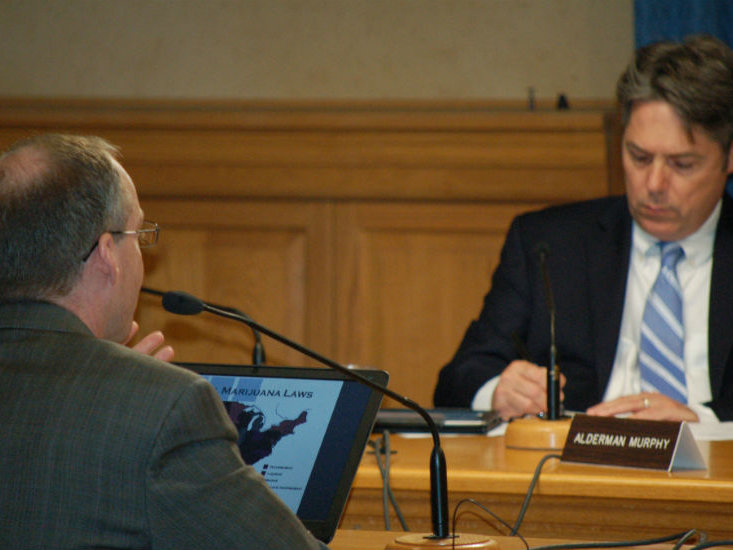{image1}Although some states like California and Alaska have decriminalized marijuana -- meaning there isn't prison time for a first offense and it's treated more or less like a traffic violation -- Wisconsin laws are not as forgiving.
If you're caught with any amount of weed, and it's your first offense, it's possible to get six months in the clink and a $1,000 fine. Get caught twice, and the fine and sentence double. Get caught within 1,000 feet of a school and 100 hours of community service are tacked onto the punishment.
However, all of the above are misdemeanors. The consequences get really ugly if busted for dealing or growing marijuana, which are both felonies.
If nabbed with 10 plants or fewer, it's a four-and-a-half year sentence and a $500-$25,000 fine. Eleven to 50 plants buys you seven-and-a-half years in the slammer and a fine up to $50,000.
More than 50 plants? Better pray for that cake with a nail file baked into it, because you're looking at up to 15 years in prison and up to $100,000 in fines.
Of course sentencing depends on so many factors, including the attorney's skills and experience, the mindset of the judge and so forth.
The penalty for selling ganja is similar to growing it. Five-hundred grams or less is four-and-a-half years in jail and up to $25,000 in fines. More than 500 grams is seven-and-a-half years and up to $50,000.
If a dealer sells to a minor that's at least three years younger, the penalty is doubled and if it's done within 1,000 feet of a school it's an additional five years in the pokey.
Although only a misdemeanor, if busted with paraphernalia (pipes, bongs, "roach clips," etc.) it's probably going to result in 30 days of jail time. Selling paraphernalia will get 90 days in prison and selling to a minor is nine months and a $10,000 fine.
Wisconsin does, however, allow conditional release or alternative or diversion sentencing for people facing their first prosecutions. Usually, conditional release lets a person opt for probation rather than trial. After successfully completing probation, the individual's criminal record does not reflect the charge.
This makes Wisconsin less strict than states like Texas and Florida, where the laws are extremely red, even for a small amount of schwag.
Allen St. Pierre, the director of NORML (National Organization for the Reform of Marijuana Laws), says Wisconsin's laws may change.
"Wisconsin is very likely the next state in America to 'legalize' medical access to marijuana for physician-approved medical patients. Recent polling indicates that Wisconsin voters favor medical access to marijuana by 80 percent," says St. Pierre. "Whether by legislative action or voter initiative, Wisconsin will likely soon join 12 other states in creating a medical marijuana law in conflict with the federal government's."
St. Pierre also says the Bush administration will have little affect on marijuana reform because most of it happens on the local or state level.
"Historically, who or what party resides in the White House does not impact local or state law reform measures," he says.
Molly Snyder started writing and publishing her work at the age 10, when her community newspaper printed her poem, "The Unicorn.” Since then, she's expanded beyond the subject of mythical creatures and written in many different mediums but, nearest and dearest to her heart, thousands of articles for OnMilwaukee.
Molly is a regular contributor to FOX6 News and numerous radio stations as well as the co-host of "Dandelions: A Podcast For Women.” She's received five Milwaukee Press Club Awards, served as the Pfister Narrator and is the Wisconsin State Fair’s Celebrity Cream Puff Eating Champion of 2019.







